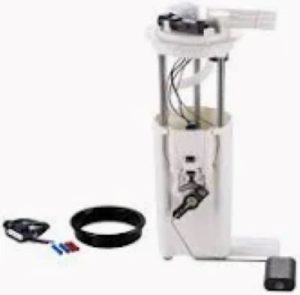Diagnoses of fuel pump noises are mainly based on an analysis of symptomatology that emphasizes location and the nature of the noise to highlight any possible hidden problem. The most common noises produced by fuel pumps are humming or whining noises, usually during operation. At its normal operation, the noise should not be too loud; however, when this noise starts getting loud, it could be a sign that something is wrong with the pump, such that it struggles due to its wear and tear. A worn-out pump normally operates inefficiently; hence, a loss in fuel delivery of up to 20% could be experienced.
The noise from the fuel pump can be diagnosed by first starting to listen while the engine is running. The sound is normally isolated by technicians by using a stethoscope to ascertain whether it is absolutely emanating from the fuel pump itself or from another component in the fuel system. If the noise happens to be a lot louder while acceleration is taking place, it could merely insinuate that the pump has to work harder than it will usually do, probably because the fuel filter is clogged or there is debris in the fuel.
Another way the problem may be diagnosed is by fuel pressure check. It can be measured by a fuel pressure gauge, with normal output of the pump falling in the range of 30 to 80 PSI. If the pressure turns out to be lower than what is expected, it may indicate a failing pump that may subsequently cause the noisy operation of such a pump while struggling to keep up the pressure well enough. If a pump does not produce pressure above 30 PSI, that probably means it's reaching the end of its life, which is roughly at 100,000 to 150,000 miles.

The most important diagnosis of fuel pump noise is through visual inspection. A leak or damage within the fuel lines and connections can be visually located, including those that could lead to an increased noise level. Loosening in mounting hardware or brackets may cause it to vibrate and amplify the overall noise the pump puts out. Hence, just by tightening these items, the overall sound level can reduce significantly.
Poor electrical conditions also lead to noise. If the fuel pump relay is faulty or there is a poor connection in the electrical circuit, the pump will not operate at a steady voltage supply. Drops below 12 volts drive the pump hard to meet the requirements, necessarily increasing the noise it emits. Periodical checking of the electrical system will help maintain stable power in the pump with reduced load under idle and noise.
In a nutshell, diagnosing the noises of Fuel Pumps involves a number of crucial steps: careful listening, pressure testing, visual checking, and electrical connections. The problems found should be resolved without delay to avoid subsequent problems to help the Fuel Pump operate quietly and efficiently for better performance of the vehicle.